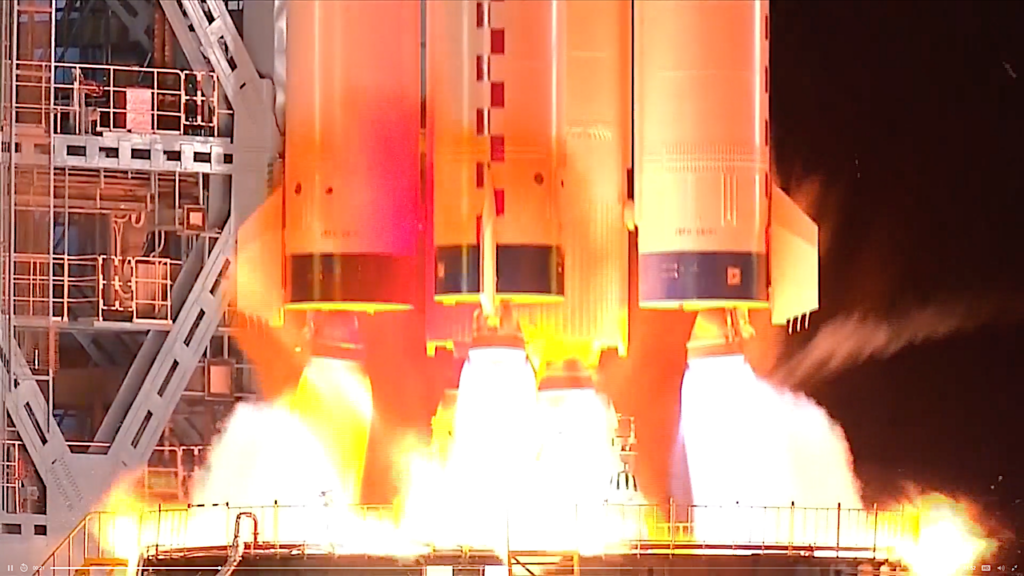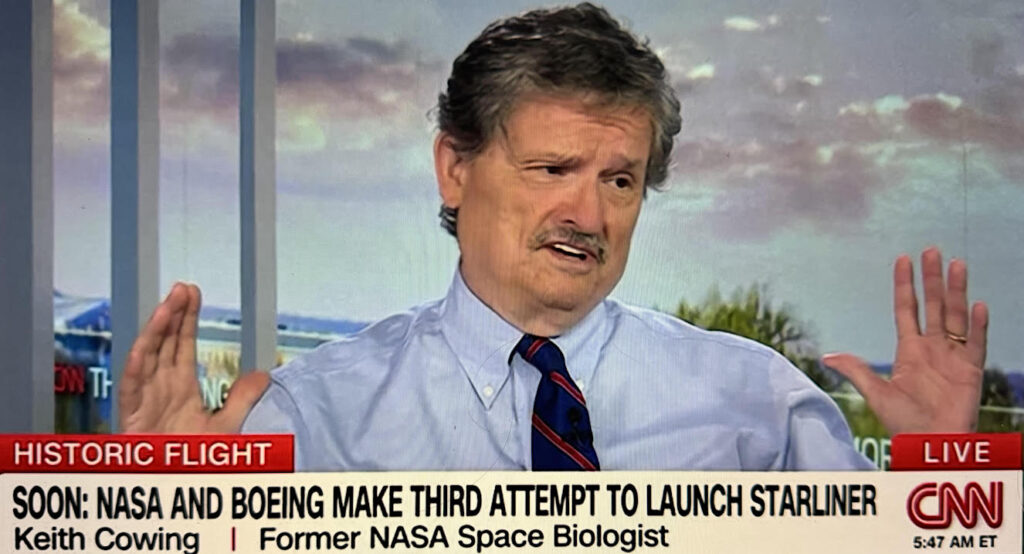If Chang'e-3 Lands, Google Lunar X Prize Drops by 25%
 Summary of Rules and Requirements, Google Lunar X Prize
Summary of Rules and Requirements, Google Lunar X Prize
“The competition’s grand prize is worth $20 million. To provide an extra incentive for teams to work quickly, the grand prize value will change to $15 million whenever a government-funded mission successfully explores the lunar surface, currently projected to occur in 2013.”
China’s Chang’e-3 to land on moon next year, China Daily
“Ma said the Chang’e-3 would probe and explore the lunar surface, and carry out various environmental and space technology related tests. It will spend 15 days on the moon to lay the foundations of what he called, further deep space exploration.”
Chang’e 3, Wikipedia
 Keith’s note: None of the Google Lunar X Prize competitors will be capable of landing on the Moon during 2013, so it is a foregone conclusion that the prize will drop in value. Add in the lack of real (existing) flight hardware, firm and fully-funded launch contracts, and all other funding required to cover other mission aspects of launch and operations, and it is becoming increasingly unlikely that any of the teams will be able to meet the Prize’s requirements by 31 December 2015. I would most certainly like to be proven wrong when someone lands on the Moon.
Keith’s note: None of the Google Lunar X Prize competitors will be capable of landing on the Moon during 2013, so it is a foregone conclusion that the prize will drop in value. Add in the lack of real (existing) flight hardware, firm and fully-funded launch contracts, and all other funding required to cover other mission aspects of launch and operations, and it is becoming increasingly unlikely that any of the teams will be able to meet the Prize’s requirements by 31 December 2015. I would most certainly like to be proven wrong when someone lands on the Moon.









So Chinese footprints on the Moon. Will the US respond?
We already did – in 1969.
that’s a lost capability, something Nasa cant do within the coming decade. maybe private companies can but the Federal State can not.
Mark,
Actually, if we’re just talking “footprints on the Moon,” as per James’ comment, then I think NASA working with US industry probably could get there within the next couple of years, if 1) they were to receive the necessary money, and 2) we reduce the safety requirements. I’m not saying I think it’s a good idea, but a very bare bones hardware suite could do it.
However, another “space race” is a really bad idea, especially if it’s just flags and footprints. It’s long past time we did it once right, instead of endless restarts and cancellations. Doing it right requires acceptance of the fact that there are no short-cuts.
I think your last sentence is in error. It would take “private companies” and “the Federal State” working together to do it. That hasn’t changed, and I don’t think it will for a long time to come yet.
Steve
Note that Chang’e-3 is not leaving human footprints. We certainly have more than enough ability to do what’s being done with Chang’e-3. I seem to remember something about a US robotic mission to Mars………a complicated but successful landing sequence……. As for the footprints of humans, if and when China lands men on the Moon, that will be significant but well behind what we did in 1969. The measure will be what follows such a landing: nothing or the first steps in a longer term presence on the Moon. We’ve already learned what results from a big, showy program with no long term plans. What Apollo (and the lead-up programs Mercury, Gemini, and even the X-15) did was amazing, but its fatal flaw was its lack of sustainability and long term planning.
that is a gross misrepresentation of NASA. Congress is doing everything in their power to keep the agency FROM going to Luna in a cost effective, sustainable way.
Congress is not about NASA going anywhere, it never has been. It is about:
1. How many high tech, high paying jobs are in my district/state and what is the tax base it represents?
2. How many contractors in my district/state can I direct cost plus, fixed fee, no bid FAR contracts too?
3. How much campaign money will I receive from these groups if I support them?
Nowhere on their list is a open up space for more commercial opportunities and new jobs.
And since 72 nothing. Resting on laurels does not make good bragging rights, IMO.
It won’t be Chinese footprints but rather Chinese rover tread prints. That’s a big difference. Just because we don’t have a rover on the moon, doesn’t mean advanced US research isn’t happening there. We’ve got LRO and GRAIL’s exceedingly high resolution gravitational mapping mission. The Chinese aren’t ready yet to put human footprints on the moon.
I always thought 20 mil was chump change. The grand prize should have been 100 mil.
Yes, it’s quite easy to tell other people how to spend their money.
No, its based on the average cost of Falcon 9 which is about $50 million. The grand prize should at least pay off my costs!
I thought so too, it should have been enough to cover the cost for a Falcon 9 launch. There also should have been more prize money for the down line .. 2nd place, 3rd place, 4th place. To keep more players in.
Vladislaw,
I’m assuming that they used the original X-Prize as a model, where it wasn’t the amount of the prize that brought in contenders, but rather the prestige in winning combined with a real belief in the goal. I think it’s hard to say whether that will work well again. I think everybody is much more profit-oriented now out of necessity.
Steve
I believe you are correct on the model they used.
I wonder how much a private company would charge to go to the Moon?I just read that a private company is forming to do that.Announcement in Dec.Land in 2020.Doesn’t say why they are going there though.So personal trips is just a guess.
> private company is forming to do that [moon flights]
There’s been lots of announcements since the 1980s, someone gave me a flashy handout of such selling pre-sale tickets for first flights beginning in early 90s. Before buying a seat, have the company make a few flights. Real ones like going into space, doing manuveurs, link up with something in space, and successfully landing back on earth. And be able to do it more than once.
“extra incentive for teams to work quickly” makes sense only if there is any possibility to work quickly. Space industry is well known for their slipping and dates moving always to right. IMO Google shouldn’t make this caveat, as this does not change anything.
MaDeR M,
I agree that to “work quickly” is not a good incentive, but for reasons of human safety and reducing the possibility of either damage or making a poor public impression. Either of these could set things back instead of encouraging progress.
Steve
I am not sure I understand why anyone thinks there is or would be another “moon race between the US and China, as it would serve no purpose for either country. In 1962 we were in the midst of the Cold War, fueled by the conflict of ideologies. The moon race was a symbolic substitute for a perilous race in nuclear arms that could have destroyed the world.
China has no interest in a new moon race. If they lost, they would look incompetent. If they won, they would irritate their biggest customer. China is an economic competitor but is as capitalist as we are. It’s geopolitical power stems in large part from the fact that China invests where it can control economic resources with no concern or interference in a country’s system of government.
That said, there are certainly people who would like to see a new moon race because they cannot come up with any other way to justify the enormous cost of a Constellation-style moon landing program. Surely avoiding a new cold war and conceivable a new nuclear confrontation is more important than making ourselves feel manly by winning a “race”. Building trust and understanding between the superpowers so as to avoid suh confrontations is a far more important goal. Working with China in space, rather than against it, both in LEO with ISS and someday on the moon, will better serve the future of the US and the world.
I wonder if NASA or some wealthy billionaire should take a flier on this, offering to put up the costs for a Falcon 9 launch for 3-4 rovers in exchange for all data rights. A couple of firms have (allegedly) built hardware ready to go.
Putting four different rovers on the moon for $100 million in government money (the F9 launch plus all the management overhead NASA will want to tack on) would be a relative bargain.